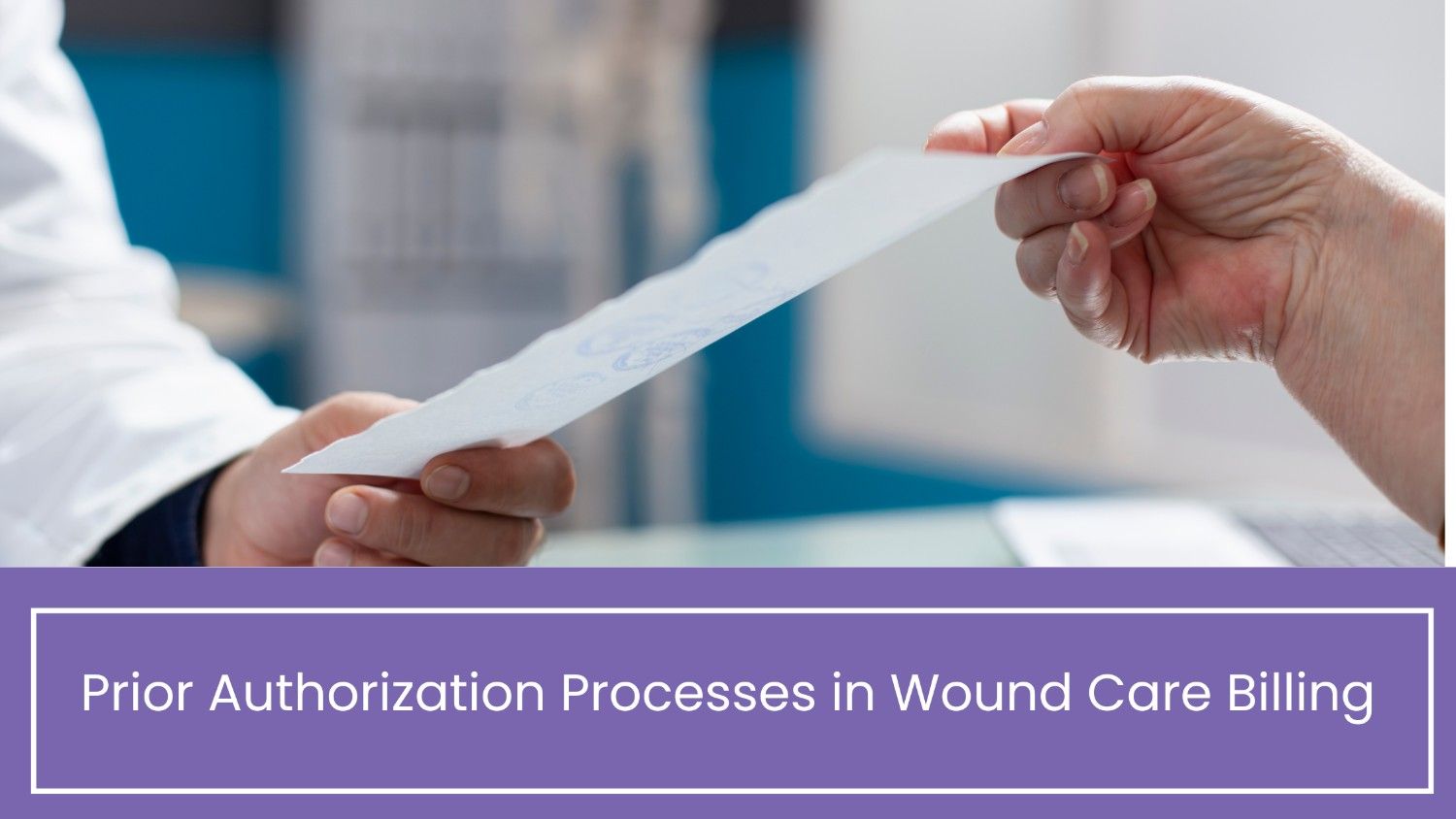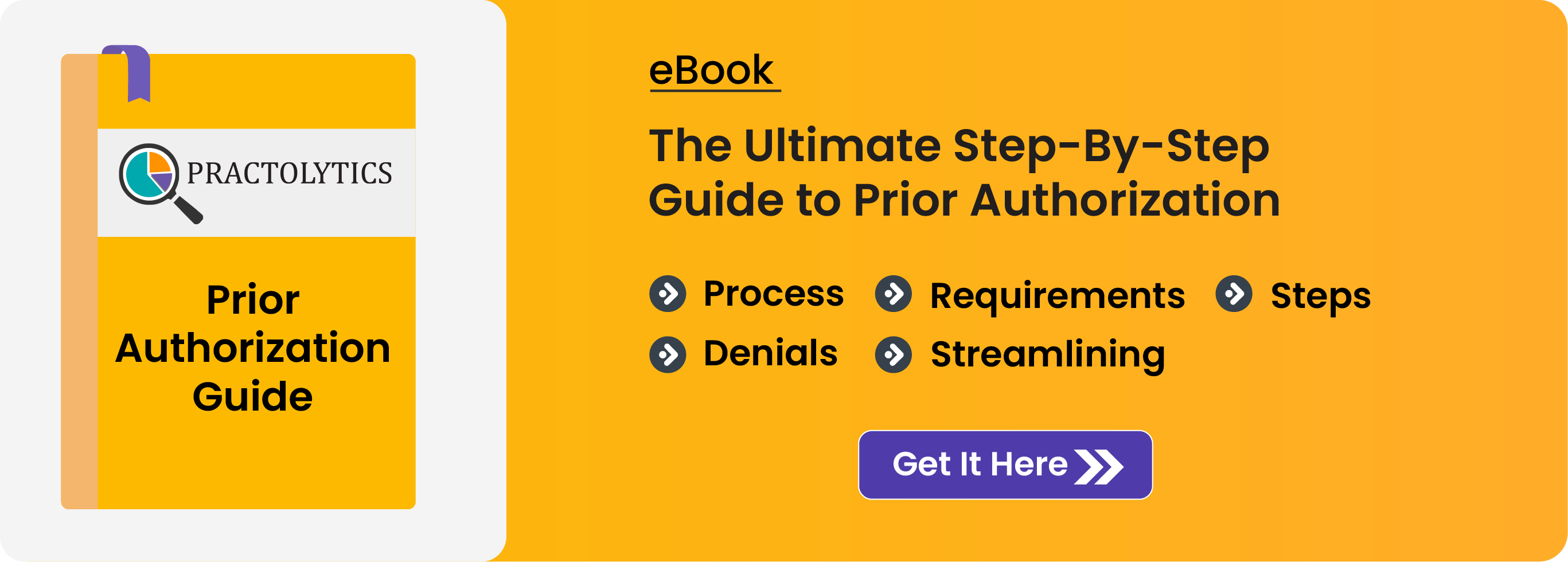Prior Authorization Processes in Wound Care Billing
In the realm of healthcare billing, managing Prior Authorization Processes in Wound Care Billing is a crucial but often cumbersome task, especially in specialized areas such as wound care. Prior authorizations are a necessary step in ensuring that patients receive the treatments they need while also allowing healthcare providers to be reimbursed for their services. However, the process can be time-consuming and prone to errors, leading to delays in patient care and payment. In this blog post, we’ll explore the challenges of prior authorizations process in medical billing and discuss best practices for streamlining the process to improve revenue cycle management (RCM).
The Challenges of Prior Authorization in Wound Care Billing
Wound care is a complex and specialized field of medicine that requires tailored treatments to address various types of wounds, including chronic wounds, burns, and surgical incisions. Due to the diverse nature of wound care treatments, prior authorizations are often necessary to ensure that insurance companies approve the proposed interventions and cover the costs involved. However, several challenges can arise in this process:
- Complexity of Treatment Plans: Wound care treatment plans are highly individualized and may involve multiple interventions, such as debridement, dressings, and specialized therapies. Obtaining prior authorizations for each component of the treatment plan can be time-consuming and require extensive documentation.
- Variability in Insurance Requirements: Different insurance companies may have varying criteria for approving wound care treatments, including specific documentation requirements, preferred products, and billing codes. Navigating these differences adds complexity to the prior authorization process and increases the likelihood of errors.
- Communication Barriers: Coordinating communication between healthcare providers, insurance companies, and patients can be challenging, leading to delays and misunderstandings. Clear and timely communication is essential for obtaining timely prior authorizations and ensuring that patients receive the care they need.
- Billing Errors and Denials: Inaccurate or incomplete billing documentation can result in denials or delays in reimbursement, further exacerbating the financial burden on healthcare providers. Proper coding and documentation are essential for preventing billing errors and maximizing revenue.
Best Practices for Streamlining Prior Authorization Processes
Despite the challenges involved, there are several best practices that healthcare providers can implement to streamline prior authorization processes in wound care billing and improve Rcm efficiency.
- Standardize Documentation Processes: Establish standardized templates and protocols for documenting wound assessments, treatment plans, and prior authorization requests. Clear and comprehensive documentation will facilitate the prior authorization process and reduce the likelihood of errors or omissions.
- Utilize Electronic Prior Authorization Tools: Leverage electronic prior authorization tools and software platforms to streamline the prior authorization process. These tools can automate eligibility checks, submission of authorization requests, and communication with insurance companies, reducing administrative burden and improving efficiency.
- Stay Updated on Insurance Policies and Guidelines: Regularly monitor updates to insurance policies, guidelines, and formularies to stay informed of changes that may impact prior authorization requirements. Maintaining up-to-date knowledge of insurance requirements will ensure compliance and reduce the risk of denials.
- Collaborate with Payers and Specialty Pharmacies: Foster collaborative relationships with insurance companies and specialty pharmacies to facilitate the prior authorization process. Proactive communication and collaboration can help resolve issues quickly and ensure timely approvals for wound care treatments.
- Implement Clinical Decision Support Tools: Integrate clinical decision support tools into electronic health record (EHR) systems to assist healthcare providers in selecting appropriate treatments and documenting medical necessity. These tools can help streamline the prior authorization process by providing evidence-based recommendations and supporting documentation.
- Educate Staff and Patients: Provide comprehensive training and education to staff members involved in the prior authorization process, including clinicians, billing specialists, and administrative staff. Ensure that staff members are familiar with insurance policies, documentation requirements, and best practices for obtaining prior authorizations. Additionally, educate patients about the importance of prior authorizations and their role in facilitating the process.
- Monitor Key Performance Indicators (KPIs): Track and monitor key performance indicators related to prior authorization processes, such as authorization approval rates, turnaround times, and denial rates. Use this data to identify areas for improvement and implement targeted interventions to optimize efficiency and effectiveness.
In short, streamlining prior authorization processes in wound care billing is essential for improving RCM efficiency and ensuring timely access to care for patients. By implementing best practices such as standardizing documentation processes, utilizing electronic prior authorization tools, staying updated on insurance policies, collaborating with payers and specialty pharmacies, implementing clinical decision support tools, educating staff and patients, and monitoring KPIs, healthcare providers can navigate the complexities of prior authorizations more effectively. By streamlining these processes, healthcare providers can enhance revenue cycle management, minimize administrative burden, and ultimately improve patient outcomes in the field of wound care.
In the ever-evolving landscape of healthcare billing, Practolytics stands out as a beacon of innovation and efficiency. As a leading provider of healthcare revenue cycle management (RCM) solutions, Practolytics offers a comprehensive suite of tools and services designed to streamline prior authorization processes in wound care billing. Leveraging cutting-edge technology and industry expertise, Practolytics empowers healthcare providers to navigate the complexities of prior authorizations with ease and precision.
From standardized documentation protocols to electronic prior authorization platforms, Practolytics equips providers with the resources they need to optimize RCM efficiency and ensure timely access to care for patients. With a commitment to excellence and a dedication to advancing healthcare billing practices, Practolytics is revolutionizing the way providers manage prior authorizations in wound care billing, ultimately improving revenue outcomes and enhancing patient care.
ALSO READ – Reviving Prior Authorization with Electronic Processing
Talk to Medical Billing Expert Today — Get a Free Demo Now!





